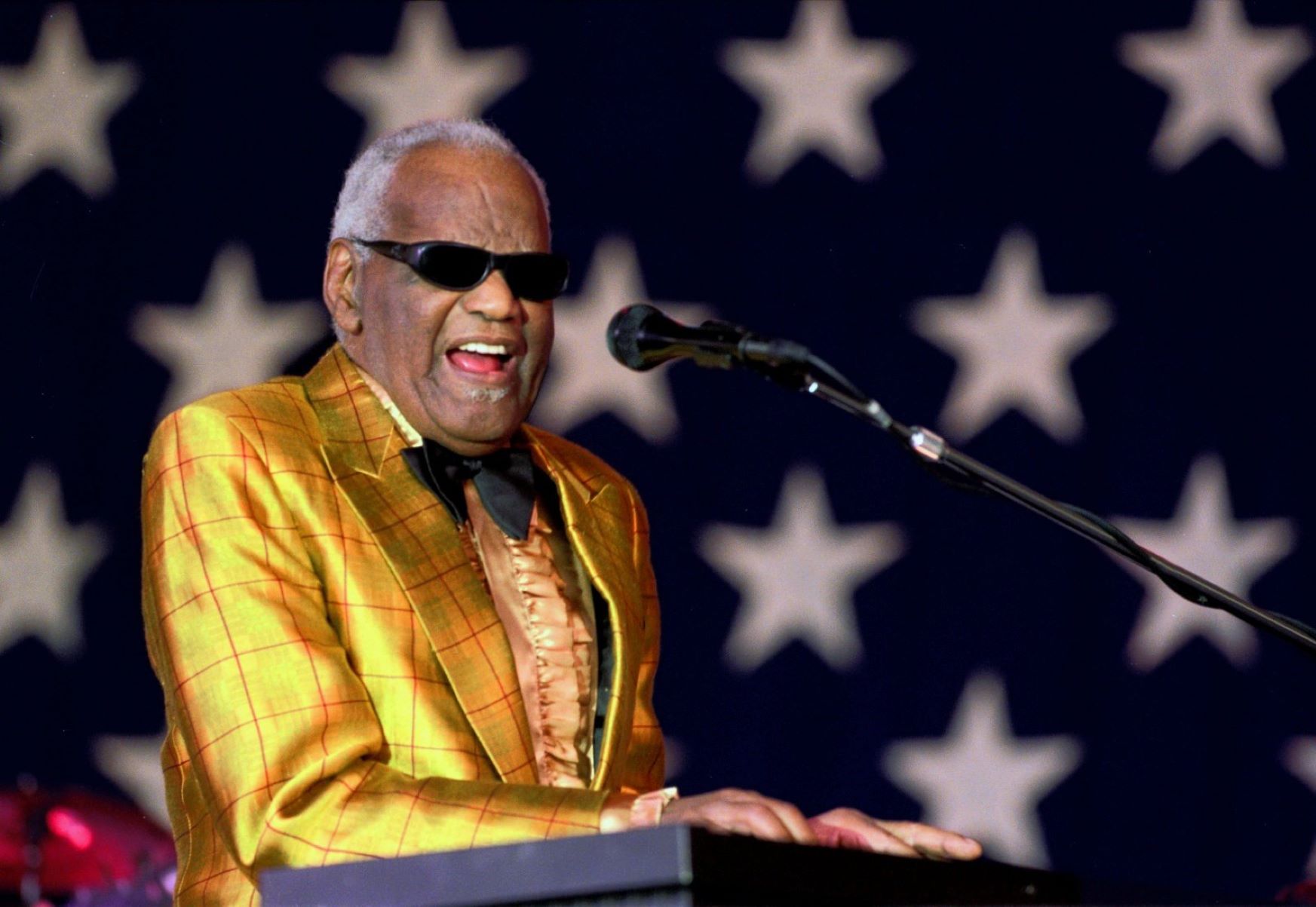Home>Instruments>Bass>Bass Players Who Sing


Bass
Bass Players Who Sing
Modified: January 28, 2024
Discover talented bass players who also have incredible singing voices. From powerful soulful vocalists to melodic crooners, explore the world of bassists who can do it all.
(Many of the links in this article redirect to a specific reviewed product. Your purchase of these products through affiliate links helps to generate commission for AudioLover.com, at no extra cost. Learn more)
Table of Contents
Introduction
Bass players, the unsung heroes of many bands, provide the foundation and rhythm that holds the music together. But what if a bass player also possesses the ability to sing? Well, that takes their musical prowess to a whole new level. Being a bass player who can sing offers numerous benefits and opportunities for musicians to showcase their versatility and stand out in the industry.
In this article, we will explore the world of bass players who sing. We’ll delve into the benefits of mastering both skills, explore famous bass players who have embraced singing, and dive into the challenges and tips for aspiring bass players with vocal abilities.
By combining the rhythmic skills of bass playing with the melodic capabilities of singing, these multi-talented musicians elevate their musical performance to another level. They not only bring a unique sound to the band, but also enhance their ability to connect with audiences on a deeper level.
One of the key benefits of being a bass player who can sing is the ability to provide vocal harmonies. By blending their own vocals with other band members or backing vocalists, these musicians can create rich and captivating harmonies that add depth and dimension to the music. This additional layer of vocal harmony can make a song feel more dynamic and engaging, captivating listeners and leaving a lasting impression.
Bass players who sing also have the advantage of being able to take on lead vocal responsibilities. While the bass guitar holds down the low end, the ability to sing allows these musicians to take the spotlight and deliver powerful and melodic performances. This versatility is particularly valuable in live performances, as it adds another element of surprise and excitement for the audience.
Not only can a bass player who sings offer a more engaging live performance, but this unique combination of skills also opens up new opportunities for collaboration and musical exploration. These musicians can seamlessly switch between providing the rhythmic backbone and taking center stage as the lead vocalist, offering a diverse range of styles and sounds. This versatility makes them highly sought after by other musicians and bands who are looking to create dynamic and multifaceted music.
Throughout music history, there have been several famous bass players who have showcased their vocal abilities. These iconic musicians have not only influenced generations of bass players but have also left an indelible mark on the music industry as a whole. From Sting of The Police to Paul McCartney of The Beatles, these bass players turned singers have demonstrated the power and impact that comes with mastering both skills.
In the following sections, we will explore the world of bass players who sing in various genres, discuss the challenges they face, and provide tips for those who aspire to become bass players with vocal abilities. So, let’s dive into the fascinating world of bass players who sing!
Benefits of Being a Bass Player Who Can Sing
Being a bass player who can also sing not only adds depth and versatility to your musical abilities but also opens up a world of opportunities. Here are some of the key benefits of mastering both skills:
- Enhanced Musical Expression: As a bass player, you already have the ability to create a solid foundation for the music. By adding singing to your repertoire, you can express your emotions and connect with the audience on a whole new level. Singing allows you to convey the lyrics and melody with your own voice, infusing personal touches and bringing a unique interpretation to the songs you perform.
- Vocal Harmonies: One of the standout benefits of being a bass player who can sing is the ability to provide vocal harmonies. By blending your vocal abilities with other band members or backing vocalists, you can create intricate and captivating harmonies that elevate the overall musical experience. Vocal harmonies add depth, texture, and complexity to the music, captivating listeners and leaving a lasting impression.
- Lead Vocal Opportunities: While the bass guitar typically holds down the low end in a band, being a bass player who can sing allows you to take on lead vocal responsibilities. This means you can take center stage and deliver powerful and melodic performances that capture the audience’s attention. Being able to switch seamlessly between playing bass and singing lead vocals adds excitement and variety to your performances.
- Musical Versatility and Collaboration: Mastering both bass playing and singing opens up a wide range of musical possibilities. You can explore different genres, experiment with different styles, and collaborate with a variety of musicians. Your ability to contribute vocally adds a new layer to the music, allowing you to create dynamic and multifaceted compositions.
- Stand Out from the Crowd: In a competitive music industry, having the ability to both play bass and sing sets you apart from other musicians. It showcases your versatility, dedication, and commitment to your craft. Being a bass player who can sing allows you to offer a full package to bands and artists who are looking for multi-talented musicians.
- Increased Performance Opportunities: By mastering both skills, you increase your opportunities for live performances. Whether it’s performing with your own band, joining other musical projects, or even taking on session work, your ability to play bass and sing opens doors to a wide range of gigs and performances.
Overall, being a bass player who can sing expands your musical horizons and provides a unique edge. It allows you to bring your own artistic expression to the forefront, collaborate with other musicians in exciting ways, and stand out from the crowd. So, if you have the talent and dedication, harnessing both skills can truly elevate your musical career.
Famous Bass Players Who Sing
Throughout the history of music, there have been several renowned bass players who have also showcased their vocal abilities. These influential musicians have not only left a lasting impact on the bass playing community but have also made significant contributions to the industry as talented singers. Here are a few examples of famous bass players who have successfully merged their skills as instrumentalists and vocalists:
- Sting: As the frontman of the iconic band The Police, Sting is widely regarded as one of the greatest bass players who sings. His distinctive voice and bass playing skills were integral to The Police’s unique sound. Songs like “Roxanne,” “Every Breath You Take,” and “Message in a Bottle” showcase Sting’s ability to provide catchy basslines while delivering soulful and emotive vocals.
- Paul McCartney: As a member of The Beatles, Paul McCartney not only played the bass guitar but also contributed as a lead vocalist and songwriter. His melodic basslines are legendary, and his vocal range and versatility made him a standout member of the band. Tracks like “I Saw Her Standing There,” “Hey Jude,” and “Let It Be” highlight his ability to masterfully blend his bass playing with his vocal performances.
- Geddy Lee: Geddy Lee, the frontman of the progressive rock band Rush, is revered for his superb bass playing and soaring vocals. His unique style of bass playing, characterized by complex basslines and intricate melodies, set him apart from other bass players. Songs like “Tom Sawyer,” “The Spirit of Radio,” and “Subdivisions” demonstrate Geddy Lee’s ability to seamlessly switch between playing bass and delivering high-pitched, powerful vocals.
- Jaco Pastorius: Jaco Pastorius was a groundbreaking jazz bass player who revolutionized the instrument with his virtuosic playing and innovative techniques. While he may not have been a traditional lead vocalist, he occasionally sang and contributed backing vocals in his music. His influential album “Jaco Pastorius” includes the track “Come On, Come Over,” where he showcases his versatile musical abilities by playing bass and singing.
- Geddy Lee: As the lead vocalist and bassist of the alternative rock band Muse, Chris Wolstenholme is known for his powerful bass playing and captivating singing. His basslines, combined with his haunting vocals, create a unique and atmospheric sound for the band. Songs like “Hysteria,” “Time is Running Out,” and “Uprising” exemplify Wolstenholme’s ability to bring together his role as the bass player and lead vocalist.
These are just a few examples of the many bass players who have successfully embraced their skills as vocalists. Their talent and creativity have not only influenced countless aspiring musicians but have also solidified their place in music history. They serve as inspiration for bass players looking to explore their vocal abilities and incorporate them into their musical journeys.
Notable Bass Players Who Sing in Different Genres
When it comes to being a bass player who can sing, the versatility extends beyond just one genre. There are notable musicians from various genres who have successfully taken on the dual role of playing bass and singing. Here are some notable examples across different musical genres:
- Geddy Lee (Rock/Progressive Rock): Already mentioned earlier as the frontman of Rush, Geddy Lee’s ability to sing while delivering intricate basslines stands out in the rock and progressive rock genres. His versatile voice and technical bass playing have made him an influential figure for aspiring bass players and musicians in these genres.
- Thundercat (Funk/Soul/Jazz): Thundercat, the alias of Stephen Bruner, is a bass player known for his skills in the realms of funk, soul, and jazz. He not only delivers soulful and groovy basslines but also lends his unique voice to his music. His distinctive falsetto singing style has become a signature element in his performances and recordings.
- Victor Wooten (Fusion/Funk): Victor Wooten is widely acclaimed as one of the greatest bass players in the world. His technical prowess and melodic playing style have earned him a prominent place in the fusion and funk genres. In addition to his bass skills, Wooten is also a talented singer and often provides vocals in his solo work, showcasing his versatility as a musician.
- Esperanza Spalding (Jazz/Neo-Soul): Esperanza Spalding is a highly skilled bassist and vocalist who has made waves in the jazz and neo-soul genres. Her fluid bass playing and sultry yet powerful singing voice have earned her critical acclaim and multiple Grammy Awards. Spalding’s ability to seamlessly blend her bass playing with her soulful vocals is a testament to her talent and creativity.
- Les Claypool (Alternative Rock/Funk Metal): Les Claypool, best known as the frontman of the band Primus, is a bass player with a unique and unconventional style. His mastery of slap bass and innovative playing techniques set him apart in the alternative rock and funk metal genres. In addition to his eccentric bass playing, Claypool also provides distinctive vocals, adding a quirky and dynamic element to the band’s music.
These notable musicians demonstrate that the ability to play bass and sing transcends genres. Whether in rock, funk, jazz, or alternative, these bass players have successfully integrated their vocal talents with their bass playing prowess. They have pushed the boundaries of what is possible and have left an indelible mark on their respective genres.
By exploring the work of these bass players, aspiring musicians can gain inspiration and learn how to incorporate their own vocal abilities into their playing, regardless of the genre they identify with. The versatility of being a bass player who can sing allows for endless creative possibilities and a unique musical identity.
Challenges Faced by Bass Players Who Sing
While being a bass player who can sing is undoubtedly a remarkable skill, it also comes with its own set of challenges. Here are some of the common hurdles faced by bass players who take on the dual role of playing bass and singing:
- Vocal Stamina: Singing requires a different set of muscles and techniques compared to playing the bass guitar. It can be physically demanding, especially if the bass parts are complex and technically challenging. Maintaining vocal stamina while playing intricate basslines for extended periods can be a daunting task that requires practice and conditioning.
- Coordinating Bass Playing and Singing: Singing and playing the bass simultaneously can be a coordination challenge. It requires the ability to independently handle separate rhythm patterns and melodies while maintaining consistency and accuracy. It takes time and practice to develop the coordination required to seamlessly merge both skills and create a cohesive performance.
- Balancing Roles: As a bass player who sings, it’s crucial to strike the right balance between playing the bass and providing vocals. Sometimes the basslines might need to take a backseat to accommodate the vocal melodies, while at other times, the vocal performance needs to harmoniously blend with the bass parts. Finding the right balance and ensuring that both aspects complement each other can be a creative challenge.
- Breathing Techniques: Singing requires proper breath control and breath support to deliver strong and consistent vocals. Bass players who sing must learn to manage their breathing effectively, balancing the demands of playing bass with the need to deliver powerful vocals. Mastering breathing techniques allows for better control of vocal dynamics and phrasing while maintaining a solid bass groove.
- Emotional Connection: As a singer, it is essential to establish a strong emotional connection with the lyrics and the audience. While playing the bass, it can be challenging to fully immerse oneself in the emotional aspects of the vocals. Creating an authentic and heartfelt vocal performance while simultaneously focusing on the technical aspects of bass playing requires a delicate balance.
- Different Skill Sets: Playing bass and singing require different skill sets, and honing both abilities simultaneously can be demanding. It might require dividing practice time between bass techniques and vocal exercises, ensuring proficiency in both disciplines. This balancing act can be time-consuming and requires dedication to develop and maintain proficiency in both areas.
Despite the challenges involved, the rewards of being a bass player who can sing far outweigh the obstacles. With practice, patience, and perseverance, these challenges can be overcome, allowing for a seamless integration of bass playing and singing skills.
It’s important to remember that every musician faces their own unique challenges, and the journey of becoming a bass player who sings is no exception. Embracing these challenges as opportunities for growth and continuously pushing boundaries can lead to the development of a truly captivating and versatile musical expression.
Tips for Becoming a Bass Player Who Sings
If you aspire to become a bass player who can sing, here are some valuable tips to help you develop and refine your skills:
- Master Bass Fundamentals: Before diving into singing, make sure you have a solid foundation as a bass player. Practice and develop your technique, timing, and groove. Build your knowledge of scales, chords, and music theory. This will provide a strong musical framework for your singing.
- Work on Vocal Technique: Develop your singing skills by practicing proper breathing techniques, vocal range exercises, and vocal warm-ups. Consider taking vocal lessons or working with a vocal coach who can provide guidance on proper vocal technique and help you explore your vocal range.
- Start with Simple Songs: Begin by singing and playing bass along with simpler songs. This will allow you to focus on coordinating both skills without overwhelming yourself. As you gain confidence and proficiency, gradually tackle more challenging pieces that showcase your abilities.
- Practice Singing and Playing Simultaneously: Set aside dedicated practice time specifically for singing and playing bass together. Start by isolating small sections and gradually integrate more complex parts. Focus on maintaining a steady rhythm and paying attention to the coordination between your vocal lines and bass playing.
- Record and Analyze Yourself: Use recording tools to capture your practice sessions and performances. Listen back to identify areas for improvement, such as timing issues or pitch accuracy. Analyzing your recordings will help you identify strengths and weaknesses, allowing you to refine your skills and make necessary adjustments.
- Study Vocalists and Bass Players: Listen to and study the work of vocalists and bass players who inspire you. Pay attention to their techniques, phrasing, and style. Incorporate elements from their performances into your own playing and singing to develop your unique musical voice.
- Experiment with Vocal Harmonies: Explore the world of vocal harmonies by practicing and experimenting with backing vocals. Start with simple harmonies and gradually introduce more complex arrangements. Learning to blend your voice with other vocalists or harmonize with yourself will add depth and richness to your performances.
- Perform Live: Take every opportunity to perform live and showcase your skills as a bass player who sings. Whether it’s playing in a band, jamming with friends, or performing at open mic nights, performing in front of an audience will help you gain confidence, refine your skills, and receive valuable feedback.
- Practice Consistently: Practice regularly and consistently to improve your skills as a bass player who can sing. Set aside dedicated practice time each day or week and stay committed to your musical development. Consistency is key to mastering both skills and maintaining progress over time.
Remember, becoming a bass player who can sing requires time, dedication, and patience. Embrace the journey, celebrate your progress, and continuously challenge yourself to grow as a musician. With persistence and a devotion to your craft, you can become a standout bass player who captivates audiences with your instrumental and vocal abilities.
Conclusion
Becoming a bass player who can sing is a remarkable achievement that opens up a world of possibilities in the music industry. The ability to combine the rhythmic foundation of bass playing with the melodic expression of singing sets these musicians apart and allows them to showcase their versatility and creativity. While this dual role presents challenges, such as coordinating bass playing and singing, developing vocal stamina, and balancing roles, the rewards are well worth the effort.
By being a bass player who can sing, you can enhance musical expression, contribute vocal harmonies, take on lead vocal responsibilities, and explore diverse collaborations and genres. The influence of famous bass players who sing, such as Sting, Paul McCartney, and Geddy Lee, serves as an inspiration for aspiring musicians looking to master both skills.
If you aspire to become a bass player who can sing, it’s essential to master bass fundamentals, work on vocal technique, and practice singing and playing bass simultaneously. Recording and analyzing your performances, studying the work of influential musicians, experimenting with vocal harmonies, and consistently practicing will pave the way for your growth and progress.
Remember, the journey of becoming a bass player who sings requires dedication, patience, and a love for music. Embrace the challenges that come your way and view them as opportunities for growth. With time and perseverance, you can develop into a captivating musician who captivates audiences with your unique blend of bass playing and singing.
So, grab your bass guitar, warm up those vocal cords, and embark on a musical journey that combines the best of both worlds. Your journey as a bass player who can sing holds immense potential for artistic expression, collaboration, and personal fulfillment.











